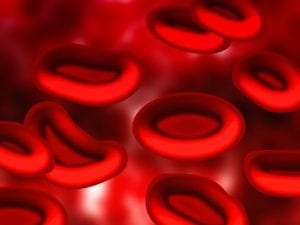Thalassemia
What is thalassemia?
Thalassemia is an inherited blood disorder that is characterized by either malfunctioning or too little hemoglobin. When this occurs, a high number of red blood cells are destroyed, leading to the characteristic symptoms of the disorder.
There are two forms of this condition, alpha and beta, that correspond to the different portions of hemoglobin that are impacted. Alpha globin and beta globin make up hemoglobin, and they directly relate to the types of thalassemia. Additionally, the disease can be further classified as major or minor. This results in beta thalassemia major, beta thalassemia minor, alpha thalassemia major, and alpha thalassemia minor.
What are the symptoms of thalassemia?
Symptoms differ based on which form of thalassemia one has. In the most severe form of alpha thalassemia, the result is stillbirth. Beta thalassemia major results in severe anemia around age one. Common symptoms of thalassemia include:
- Fatigue
- Failure to thrive
- Skeletal deformities in the face
- Jaundice
- Shortness of breath
The minor forms of thalassemia are not symptomatic but do see small red blood cells.
Possible complications include liver problems, heart failure, and increased susceptibility to infections.
What causes thalassemia?
There are two forms of thalassemia: alpha and beta. They correspond to the two proteins that compose hemoglobin (alpha globin and beta globin). When a gene that is needed in the production of these proteins malfunctions, it results in thalassemia. Further, if only one parent passes down a mutated gene, then the child has thalassemia minor. If two parents pass down the affected gene, the result is thalassemia major.
There are risk factors, one of which is being of Mediterranean, Asian, or African-American descent. The other is a family history of the disease.
How is thalassemia diagnosed?
Doctors will begin with a physical exam before conducting a blood test. They will then examine the sample under a microscope to judge the shape of the hemoglobin, conduct a complete blood count, perform hemoglobin electrophoresis, and run a mutational analysis.
What are the treatments for thalassemia?
The major treatment options for thalassemia are folate supplements and regular blood infusions. In some, a bone marrow transplant may be helpful in reducing symptoms. This is especially the case in children.
Where can I find out more about thalassemia?
Thalassemia Articles

Rare Community Profiles: How Kenzi is Navigating the Challenges of MCTD, FCAS, and Medical PTSD


The Impact of COVID-19 on Patients with Thalassemia and Sickle Cell Disease: A Webinar Review

Review of Rare Movement Disorders in India and the United States
-239x300.jpg)
An In-Depth Look at the European Medicines Agency’s Orphan Drug Designation Post-Brexit

Early Data Looks Encouraging for an Experimental Thalassemia Treatment



